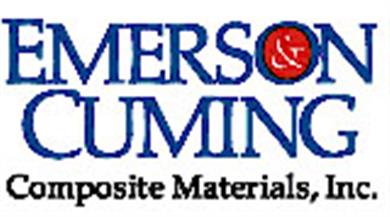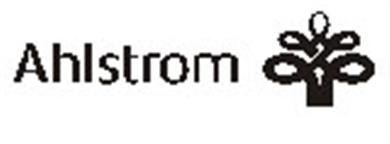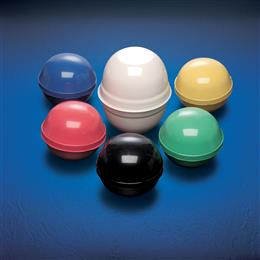23 Oct 2004
Cyclics and Emerson & Cuming Composite Materials, Inc. Announce Superior Thermoforming Material
 Düsseldorf, Germany – Cyclics Corporation will supply it’s new CBT® 200 resin to Emerson & Cuming Composite Materials, Inc. (ECCM) to create a superior plug-assist thermoforming material to be available in early 2005. The new product, known as Eccolite® Ultra Syntactic Foam, has several advantages in both the production of thermoforming tools, part quality and manufacturing efficiency to moulders. The material will be available from ECCM in rods, blocks and sheets to be machined into thermoforming tools used in plastic vacuum forming operations. Eccolite Ultra is dust free during machining which eliminates airborne health hazards to toolmakers and does not get into machine tool bearings. The new product can also produce superior surface finishes enabling improved part quality, especially on clear plastics. Additionally, Eccolite Ultra can withstand higher temperatures than conventional syntactic foams allowing moulders to run tools hotter and faster than before.
Düsseldorf, Germany – Cyclics Corporation will supply it’s new CBT® 200 resin to Emerson & Cuming Composite Materials, Inc. (ECCM) to create a superior plug-assist thermoforming material to be available in early 2005. The new product, known as Eccolite® Ultra Syntactic Foam, has several advantages in both the production of thermoforming tools, part quality and manufacturing efficiency to moulders. The material will be available from ECCM in rods, blocks and sheets to be machined into thermoforming tools used in plastic vacuum forming operations. Eccolite Ultra is dust free during machining which eliminates airborne health hazards to toolmakers and does not get into machine tool bearings. The new product can also produce superior surface finishes enabling improved part quality, especially on clear plastics. Additionally, Eccolite Ultra can withstand higher temperatures than conventional syntactic foams allowing moulders to run tools hotter and faster than before.
23 Oct 2004
Cyclics and Ahlstrom to Jointly Develop Wind Power and Marine Composites
 Düsseldorf, Germany – Cyclics Corporation and Ahlstrom Glassfibre Oy, a wholly owned subsidiary of Ahlstrom Corporation, have entered into a Research and Development Agreement in wind turbine and marine applications. The agreement will use CBT® resin in combination with Ahlstrom’s glassfibre reinforcements and will utilize various moulding processes.
Düsseldorf, Germany – Cyclics Corporation and Ahlstrom Glassfibre Oy, a wholly owned subsidiary of Ahlstrom Corporation, have entered into a Research and Development Agreement in wind turbine and marine applications. The agreement will use CBT® resin in combination with Ahlstrom’s glassfibre reinforcements and will utilize various moulding processes.
23 Oct 2004
Cyclics Completes €55.9 million ($68 million) First Plant Financial Package
Schenectady, NY, September 14, 2004 – Cyclics Europe GmbH, a wholly owned subsidiary of Cyclics Corporation (USA) (www.cyclics.com) announced the completion of the €55.9 million ($68 million) limited recourse financing package with KfW IPEX-Bank to finance construction of a CBT® resin plant in Schwarzheide, Germany and working capital. The package is made up of private equity investments, grants and subsidies from the State of Brandenburg and German Federal government, and loans and lines of credit from KfW IPEX-Bank. KfW IPEX-Bank is the sole lender on the project. Funding for the design and construction thus far was supported with private investment in order to accelerate the commercialization of CBT resin. CBT resin is finding applications in the automotive, construction, wind power, fuel storage tanks and large castings. The completed plant will employ more than 70 people.
23 Oct 2004
Alcan Granted Global Exclusivity by Cyclics on CBT® Resin
Sins, Switzerland, June 10, 2004 – Alcan Composites, a business unit of Alcan Inc., and Cyclics Europe GmbH (Germany), a subsidiary of Cyclics Corporation (USA) have today announced a cooperation agreement for the development and commercialization of Cyclics’ CBT® resin, the cyclic form of polybutylene terephthalate resin, in key strategic markets. CBT® resin is an innovative plastic that allows new material combinations for the composites industry. Specific terms of the agreement were not disclosed.
23 Oct 2004
As 1st Commercial Plant Nears Completion, Cyclics Plans Expansion and Begins Global Search for 2nd Larger Plant
 Düsseldorf, Germany - October 23, 2004 – The Cyclics Corporation announced the initiation of a formal search to site a second, world scale plant for the production of CBT® resin. Although the search currently is focused primarily in North America and Europe, other regions will also be considered. Proximity to raw materials, low raw material and energy costs, availability of skilled labor, good transportation routes and attractive financial incentives are among the key criteria Cyclics is evaluating for siting the second plant. Davy Process Engineering (www.davyprotech.com), the engineering firm that led the design and construction of Cyclics’ first plant, in Schwarzheide, Germany, will assist in the site qualification process.
Düsseldorf, Germany - October 23, 2004 – The Cyclics Corporation announced the initiation of a formal search to site a second, world scale plant for the production of CBT® resin. Although the search currently is focused primarily in North America and Europe, other regions will also be considered. Proximity to raw materials, low raw material and energy costs, availability of skilled labor, good transportation routes and attractive financial incentives are among the key criteria Cyclics is evaluating for siting the second plant. Davy Process Engineering (www.davyprotech.com), the engineering firm that led the design and construction of Cyclics’ first plant, in Schwarzheide, Germany, will assist in the site qualification process.
23 Oct 2004
Cyclics Announces First Commercial CBT® Resin Products
 Düsseldorf, Germany - October 23, 2004 – The Cyclics Corporation announced its first commercial product grades, which will be available early in 2005 from their plant in Schwarzheide Germany. CBT® 100 resin and CBT® 200 resin both melt to a water-like viscosity when heated then polymerize into the engineering thermoplastic polybutylene terephthalate (PBT) when catalyzed. CBT 100 resin has a processing temperature between 190-240C and will be available in both one and two-part systems. This resin is formulated for compounding, injection moulding, nanocomposites, rotational moulding and as a carrier resin for color and filler concentrates. For applications requiring a lower processing temperature, CBT 200 resin has a processing range between 170-240C and also is available in both one- and two-part systems. CBT 200 resin is formulated for various casting, low pressure moulding, coatings and composite applications where the lower melt temperature allows for longer working time than CBT 100 resin before polymerizing into the engineering thermoplastic PBT.
Düsseldorf, Germany - October 23, 2004 – The Cyclics Corporation announced its first commercial product grades, which will be available early in 2005 from their plant in Schwarzheide Germany. CBT® 100 resin and CBT® 200 resin both melt to a water-like viscosity when heated then polymerize into the engineering thermoplastic polybutylene terephthalate (PBT) when catalyzed. CBT 100 resin has a processing temperature between 190-240C and will be available in both one and two-part systems. This resin is formulated for compounding, injection moulding, nanocomposites, rotational moulding and as a carrier resin for color and filler concentrates. For applications requiring a lower processing temperature, CBT 200 resin has a processing range between 170-240C and also is available in both one- and two-part systems. CBT 200 resin is formulated for various casting, low pressure moulding, coatings and composite applications where the lower melt temperature allows for longer working time than CBT 100 resin before polymerizing into the engineering thermoplastic PBT.
14 Oct 2004
Irish Company Signs Agreement with Mitsubishi Heavy Industries and Cyclics to Cooperate in Development of Thermoplastic Composite Wind Turbine Blades
 Galway, Ireland, October 12, 2004 – Gaoth Tec Teo has signed Cooperation Agreements with Mitsubishi Heavy Industries (Nagasaki, Japan) and with Cyclics Corporation (USA) to develop thermoplastic composite wind turbine blades for large scale wind power installations around the world. The blades will be made using Cyclics’ CBT® resin and a variety of reinforcing additives. The use of CBT resin will allow improved manufacturing efficiencies and improved workplace safety through the elimination of hazardous epoxy resin components. Using a CBT resin system will provides the opportunity for the world’s first recyclable wind power blade. The ability to re-use the 19 tonnes (42,000 pounds) of wind blade materials per average wind turbine at the end of its useful life is unprecedented in the industry. This development further improves the environmental benefits and sustainability of wind power as a viable energy option. Specific terms of the agreements were not disclosed.
Galway, Ireland, October 12, 2004 – Gaoth Tec Teo has signed Cooperation Agreements with Mitsubishi Heavy Industries (Nagasaki, Japan) and with Cyclics Corporation (USA) to develop thermoplastic composite wind turbine blades for large scale wind power installations around the world. The blades will be made using Cyclics’ CBT® resin and a variety of reinforcing additives. The use of CBT resin will allow improved manufacturing efficiencies and improved workplace safety through the elimination of hazardous epoxy resin components. Using a CBT resin system will provides the opportunity for the world’s first recyclable wind power blade. The ability to re-use the 19 tonnes (42,000 pounds) of wind blade materials per average wind turbine at the end of its useful life is unprecedented in the industry. This development further improves the environmental benefits and sustainability of wind power as a viable energy option. Specific terms of the agreements were not disclosed.